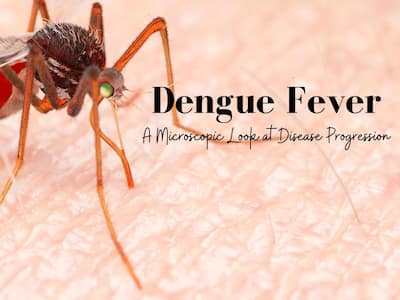
Here’s what happens inside your body after dengue virus enters your bloodstream.
Dengue seems to be taking a serious turn in some parts of India, especially in the rural areas. Uttarakhand and West Bengal are the hardest-hit states, with a surge in cases in the last 24 hours. The Indian government is scrambling to contain the outbreak, but more needs to be done to stop the spread of the disease. Insecticide spraying, mosquito net distribution, and public awareness campaigns are important steps, but they are not enough. As per the latest statement by the health authorities, people are still unaware of how the transmission of the dengue virus happens and what triggers the breeding of this mosquito.
“Most of the people in the city are not aware of the transmission process of the dengue virus, which is a concerning matter. While taking a look at the houses in the cities which are experiencing a maximum number of daily cases, we could see that they still have accumulated water in their houses. Understanding the virus, and how it spreads and transmits is important and crucial at the time to contain the spread of dengue,” a health official from South Dum Dum was quoted as saying.
As dengue is spreading like wildfire in the country, it is important for us to explore the hidden world of dengue fever and take a microscopic look at the virus’s progression after entering the body.
The Dengue Virus: A Microscopic Intruder and Its Impact on Your Body
Ever wondered what actually happens inside your body after contracting the dengue virus? In this article, we understand what happens inside your body after contracting the dengue virus.
Dengue viruses are spread to people through the bite of an infected Aedes species (Ae. aegypti or Ae. albopictus) mosquito. The mosquito first pierces the upper layer of your skin with its proboscis, a long, thin mouthpart designed for sucking blood. As the mosquito feeds, it injects saliva into your bloodstream. The mosquito’s saliva also contains the dengue virus. If the mosquito is infected with the virus, it will be transmitted to you during the bite.
So, that’s how the virus transmits from the body of a mosquito to the bloodstream of a human being.
Now, after entering your bloodstream, the dengue virus begins to replicate. It infects white blood cells, which are part of your immune system.
Some of the organs that the virus affects after infecting you are your liver, spleen, and lymph nodes. It takes about 4-10 days for the virus to replicate enough in your body to cause symptoms. This is known as the incubation period.
READ RELATED: The Best 90-Day Workout To Melt Your Santa Belly Before the Holidays
Symptoms of Dengue
Dengue fever is also known as ‘breakbone fever’ as a patient suffers from continuous high-grade fever accompanied by severe muscle and joint pain. In some cases, dengue can cause bleeding due to low platelets and low blood pressure (a condition called dengue shock syndrome). Look out for these common signs and symptoms of the dengue virus that your body may show up after contracting the virus:
- Fever accompanied by severe muscle cramps
- Headache
- Joint pain
- Skin rashes
- Nausea and vomiting
- Extreme tiredness or fatigue
- Loss of appetite
In some cases, dengue fever can develop into a more severe form of the disease called severe dengue fever. Severe dengue fever can cause:
- Severe bleeding
- Shock
- Multiple organ failure
Post-Recovery Journey For A Dengue Patient
Once you catch the virus, there is no way you can run away from the common complications that the virus may cause. Some of the symptoms are discussed above. But what happens next? As per doctors, even after recovery, many patients bear its after-effects like fatigue, generalized weakness, body ache with joint pains, loss of appetite, rashes, hair loss, etc. Therefore, it is always recommended to follow up with your doctor and make sure to lead a healthy and well-balanced lifestyle.
Post-dengue weakness and fatigue are normal. The body has been fighting the foreign intruders since so many days now. This weakness can often make it difficult for the recovered patients to indulge in any type of physical activity such as gym, strength training, etc. Some may also suffer acute liver inflammation which leads to weakness and also loss of appetite. This loss of appetite and reduced food intake can further lead to nutritional deficiencies and sudden weight loss. A dengue-recovered patient may also suffer low platelet counts and complications associated with it.
Total Wellness is now just a click away.
Follow us on
Don’t Miss Out on the Latest Updates.
Subscribe to Our Newsletter Today!
window.addEventListener(‘load’, (event) => {
$(‘#commentbtn’).on(“click”,function(){
(function(d, s, id) { var js, fjs = d.getElementsByTagName(s)[0]; if (d.getElementById(id)) return; js = d.createElement(s); js.id = id; js.src = “//connect.facebook.net/en_US/sdk.js#xfbml=1&version=v2.3”; fjs.parentNode.insertBefore(js, fjs);}(document, ‘script’, ‘facebook-jssdk’));
$(“.cmntbox”).toggle();
});
});








